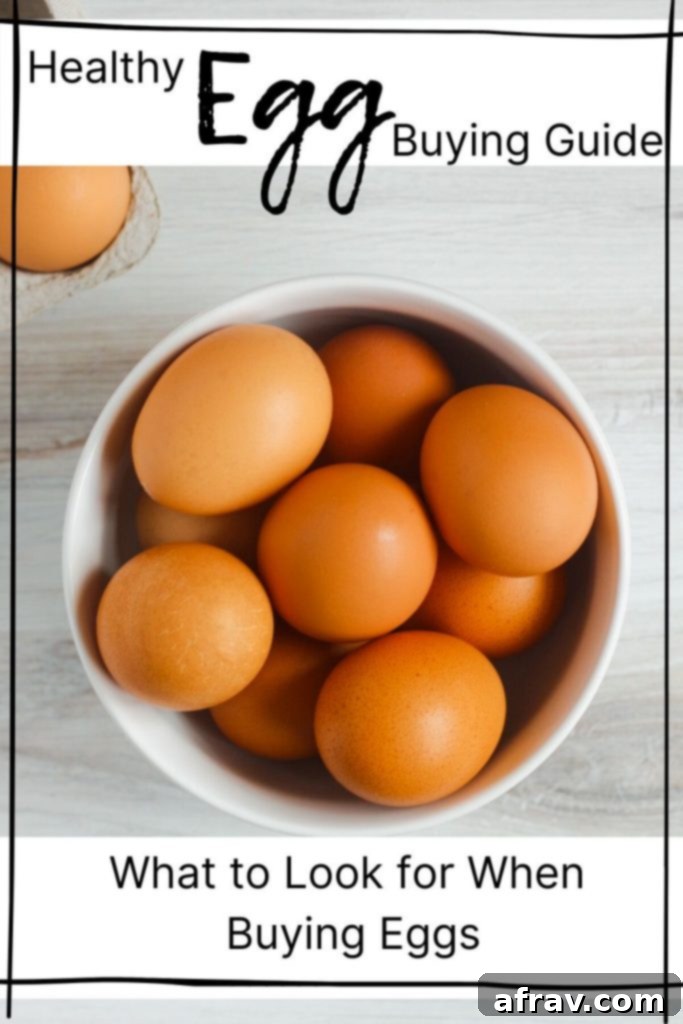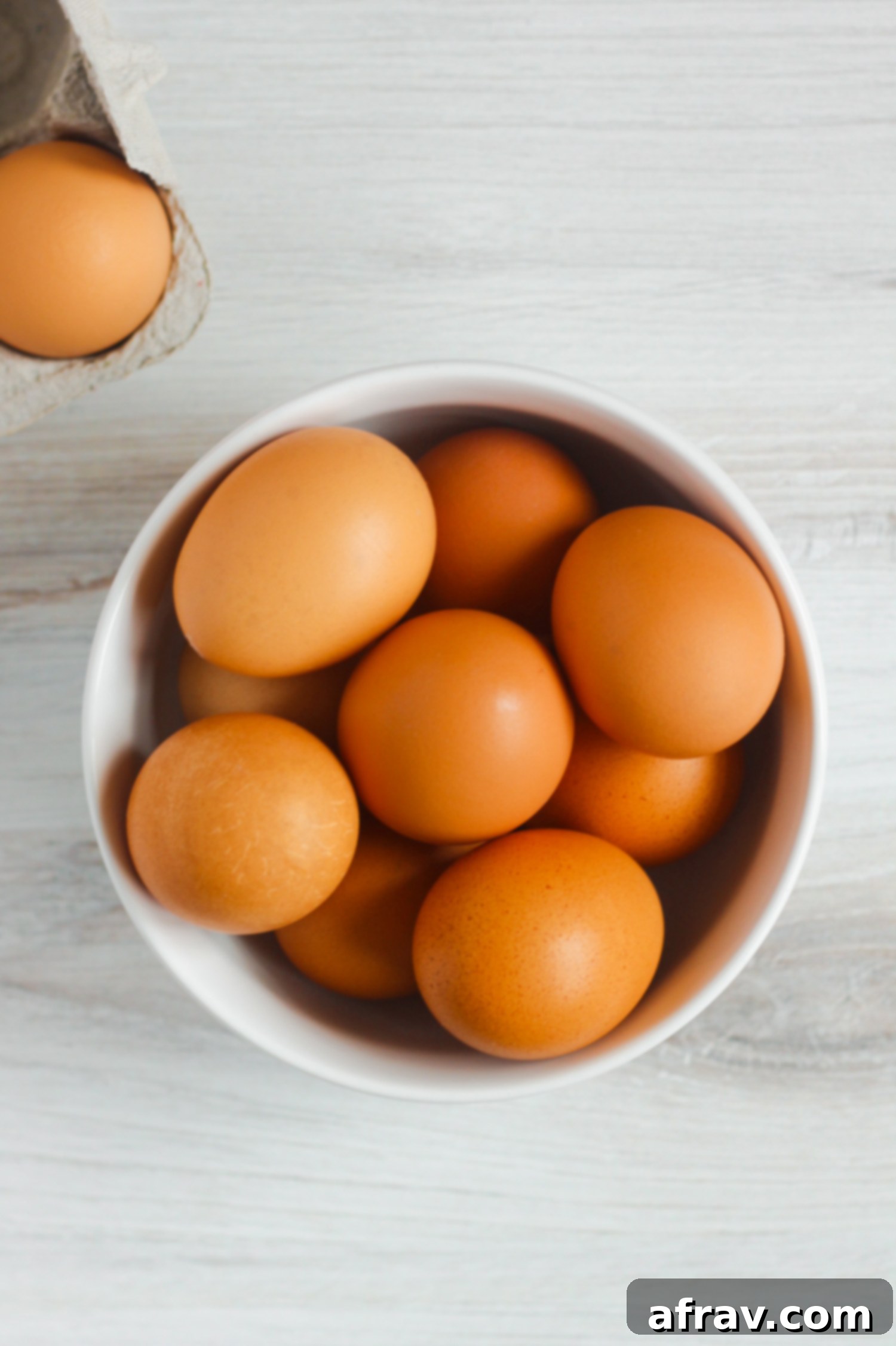Decoding Egg Labels: Your Ultimate Guide to Choosing Healthy, Humane, and Nutritious Eggs
From a quick scramble for breakfast to a rich batter for baking, eggs are a staple in many households. Yet, a trip to the grocery store often presents a perplexing array of options, each carton adorned with various labels and certifications. You might find yourself asking: what do all these egg labels truly mean? This comprehensive egg buying guide is designed to empower you with the knowledge needed to make informed choices, ensuring you bring home the healthiest and most ethically sourced eggs available.
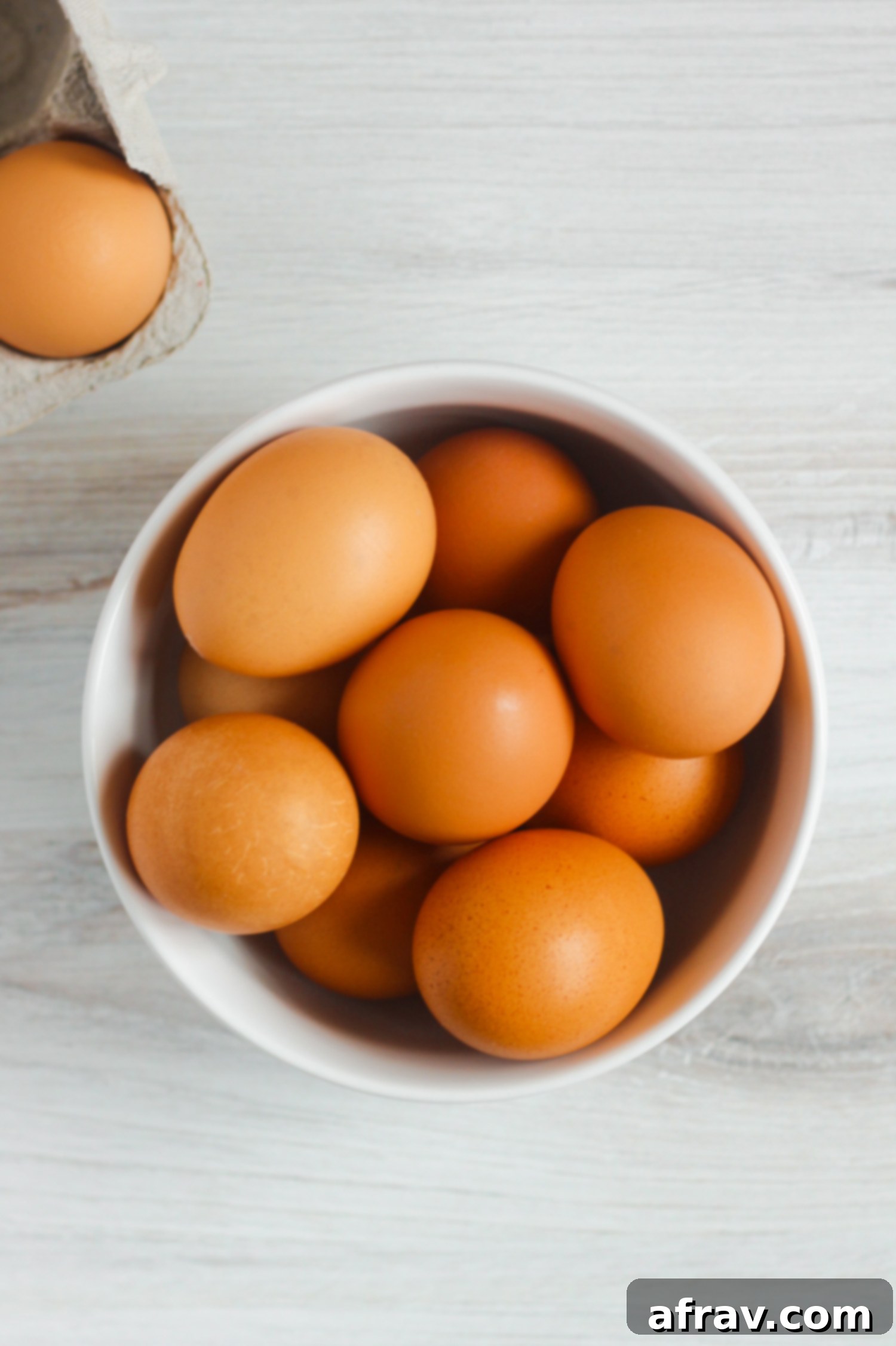
As conscious consumers, we strive to provide our families with the healthiest versions of the foods we consume. When it comes to animal products, understanding the conditions in which the animals were raised is paramount. This insight not only speaks to ethical considerations but also significantly impacts the nutritional quality of the final product. For years, “organic” was often considered the gold standard, promising a better choice. However, as we delve deeper into animal welfare practices, it becomes clear that the term “organic” primarily addresses environmental factors like feed composition (e.g., non-GMO, pesticide-free) and antibiotic use, with only minimal impact on the actual living conditions and treatment of the animals. Today, many consumers seek to look beyond mere organic certification, desiring transparency regarding how the hens themselves were raised.
Understanding a Hen’s Natural Habitat and Well-being
To truly appreciate what makes an egg healthy and humane, let’s consider how a hen naturally thrives. In their natural environment, hens are active foragers, spending their days outdoors pecking at green plants, seeds, and a variety of insects. This diverse diet, combined with ample space for roaming, dust bathing, and socializing, is essential for their physical health and psychological well-being. Consequently, an ideal life for a laying hen involves free movement across lush pastures, enjoying the fresh air and sunshine.
Unfortunately, the reality for most commercially raised hens is starkly different. The vast majority are confined to cramped spaces, often indoors, with barely enough room to stretch their wings. Many may never experience the outdoors or feel the warmth of natural sunlight. This lack of natural environment and activity not only leads to significant stress and poor welfare for the hens but can also directly affect the quality and nutritional profile of the eggs they produce. Stress can compromise a hen’s immune system and impact her ability to lay nutrient-dense eggs. A hen allowed to forage naturally will consume a broader spectrum of nutrients, which are then passed into her eggs.
In an ideal world, many of us would love to have our own backyard coop, complete with happy hens freely roaming and providing fresh eggs daily. However, for those of us living in urban or suburban environments, or in climates like Minnesota where year-round outdoor access for hens is challenging, this isn’t always feasible. Access to local farmers’ markets for fresh, ethically sourced eggs can also be limited depending on the season and location. The good news is that you don’t need your own farm to find high-quality, humane eggs. The key lies in understanding what to look for when navigating the grocery store aisles and recognizing the labels that truly signify superior welfare and nutrition.
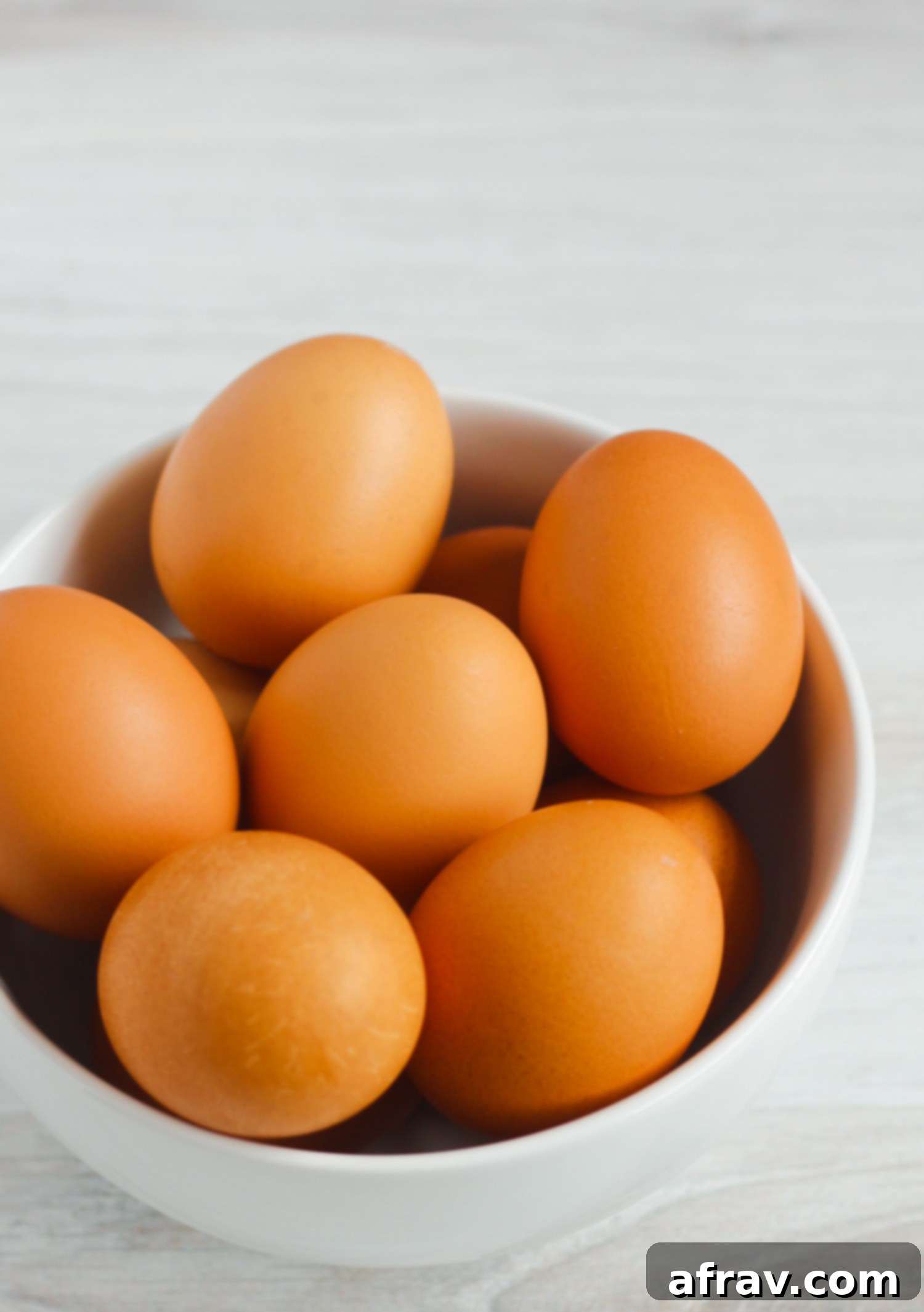
Decoding Common Egg Labels: What Are You Really Buying?
The myriad of labels on egg cartons can be incredibly confusing, making it difficult to discern which options truly align with your values for animal welfare and nutrition. Let’s break down what these common egg labels mean, so you can make a truly informed decision on your next purchase, understanding the conditions behind each claim.
- Cage-Free: This label, while sounding appealing and ethical, unfortunately offers minimal guarantees for improved hen welfare. “Cage-free” simply means that the hens are not kept in traditional battery cages. However, they are still typically housed indoors in large industrial hen-houses, often in extremely crowded conditions with little to no space to move, stretch their wings, perch, or engage in natural behaviors like dust bathing. They have no access to the outdoors, and their diet usually consists of conventional corn and soy, which is far from their natural foraging diet and can impact egg quality and the hen’s health. The high-stress, low-activity environment also contributes to lower overall welfare.
- Free-Range: This is a slight improvement over cage-free, but it’s important to understand its limitations. According to USDA regulations, “free-range” (which also implies cage-free) hens must have access to the outdoors. However, this “access” can be as little as a small, fenced-in concrete porch or a pop-door to an unappealing patch of dirt, and the amount of time they are given access is often undefined and unregulated. Hens, being creatures of habit and comfort, tend to stay where their food and water are readily available, which is usually inside the barn. Consequently, many “free-range” hens may never actually venture outside, effectively living much like cage-free hens. The limited, often unattractive, outdoor space provides little opportunity for natural foraging or exercise, leading to only marginal improvements in welfare compared to cage-free.
- Organic: The “organic” label signifies that the hens were fed organic, non-GMO feed (free from pesticides, herbicides, and animal by-products) and were not given antibiotics or hormones (though hormones are already prohibited in laying hens, so all eggs are hormone-free). By definition, organic eggs also come from “free-range” hens, meaning they have *access* to the outdoors. While eliminating antibiotics and ensuring a cleaner diet for the hens is a positive step, the “access to outdoors” clause carries the same limitations as the “free-range” label. Therefore, organic certification alone doesn’t guarantee significant improvements in actual outdoor time, space, or comprehensive animal welfare. It’s a good baseline for feed quality, emphasizing what’s *not* in the feed, but less so for the overall living conditions and well-being of the hens.
- Pasture-Raised: Now we’re getting much closer to the ideal for both hen welfare and egg quality! “Pasture-raised” depicts hens living much as nature intended: roaming freely on expansive, verdant pastures. These happy hens spend their days foraging for a diverse diet of green plants, seeds, and insects, supplementing their organic feed. They enjoy fresh air, natural sunshine, and ample space for natural behaviors like dust bathing, scratching, exploring, and socializing. At night, they return to a protective coop for safety and rest. This lifestyle significantly enhances both their physical health and psychological welfare, allowing them to express their natural instincts. This enriched environment and varied diet directly translate into superior quality and nutritional density in their eggs.
However, there’s a crucial caveat to the term “pasture-raised.” While it describes the ideal, the term itself is not federally regulated in the United States. This means that a carton solely labeled “pasture-raised” might not always live up to the idyllic image it conjures. Without third-party verification, the amount of actual pasture access, the quality of the pasture, or the stocking density for these hens can vary wildly from one farm to another. To ensure you’re truly getting what you expect – hens that genuinely thrive outdoors – it’s essential to look for an additional, independent certification that verifies humane treatment and adherence to rigorous standards.
The Gold Standard: Which Certification is Best for Eggs?
As highlighted, the “pasture-raised” label can sometimes be ambiguous without further verification. Thankfully, many conscientious egg producers go the extra mile to obtain independent certifications, providing consumers with verifiable assurance about hen welfare. These certifications are invaluable tools for making truly informed choices and supporting ethical farming practices.
In my opinion, the most robust and trustworthy certification to seek out is Certified Humane Raised and Handled®. This program is managed by Humane Farm Animal Care (HFAC), a leading non-profit organization dedicated to improving the lives of farm animals. Their mission is achieved by establishing stringent, science-based animal care standards and ensuring compliance through rigorous, independent third-party audits. This means the claims on the carton are verified by experts, not just self-declared by the producer.
Producers bearing the Certified Humane® Raised and Handled® label undergo thorough, unannounced inspections, guaranteeing that their practices meet HFAC’s comprehensive standards. These standards are much more detailed than general governmental regulations and include specific, measurable requirements for:
- Space: Hens must have ample indoor and outdoor space, preventing overcrowding and allowing for natural movement. For pasture-raised hens, this includes specific requirements for square footage per hen on pasture.
- Outdoor Access: Consistent, year-round access to the outdoors is mandated, along with a minimum requirement for the amount of time hens spend outside each day, weather permitting. This ensures genuine outdoor foraging.
- Diet: Feed must be of high quality and appropriate for the hens’ developmental stage, free from antibiotics (except for therapeutic use, which disqualifies eggs from being sold as Certified Humane during that period) and growth hormones.
- Humane Treatment: Emphasizes practices that allow hens to express natural behaviors, such as perching, dust bathing, and nesting in private areas, minimizing stress and discomfort. This includes requirements for proper handling and environmental enrichment.
- No Forced Molting: Practices like forced molting (starving hens to artificially extend their laying cycle) are strictly prohibited.
This certification offers unparalleled peace of mind, knowing that the hens providing your eggs are treated with respect, allowed to live in conditions that closely mimic their natural environment, and their well-being is independently verified.
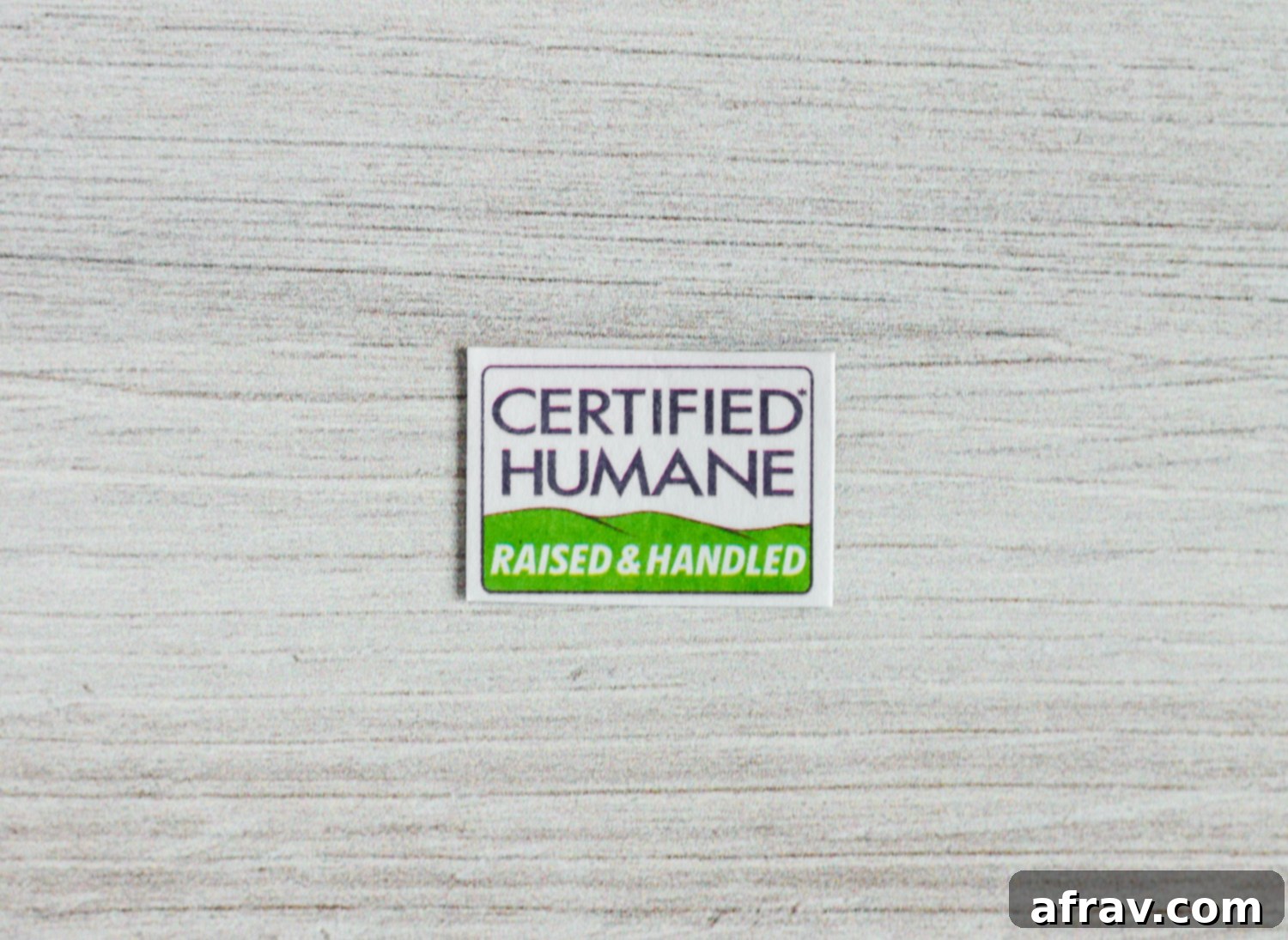
Are Pasture-Raised Eggs Truly More Nutritious?
Beyond ethical considerations, a significant advantage of choosing pasture-raised eggs is their superior nutritional profile. Yes, there’s substantial evidence and numerous studies indicating that eggs from pasture-raised hens contain higher levels of vital nutrients compared to those from conventionally raised hens.
This enhanced nutritional value makes perfect sense when you consider the hen’s diet and lifestyle. Pasture-raised hens consume a varied, natural diet of grasses, seeds, and insects they forage themselves, complementing their organic feed. This diverse intake, combined with ample sunshine and exercise, translates directly into richer, more nutrient-dense eggs for us. Specifically, pasture-raised eggs are often found to contain:
- More Vitamin A: Essential for vision, immune function, and skin health, often 2-3 times higher.
- More Vitamin E: A powerful antioxidant that protects cells from damage, with levels potentially 2-3 times greater.
- More Vitamin D: Crucial for bone health and immune system support, especially from natural sunlight exposure. Studies have shown pasture-raised eggs can contain significantly more Vitamin D – sometimes 4 to 6 times more – than eggs from hens confined indoors.
- Significantly More Beta-Carotene: A potent antioxidant and precursor to Vitamin A, known for its cancer-fighting properties and responsible for the deep orange color of the yolk. Levels can be up to 7 times higher.
- Double or More Omega-3 Fatty Acids: These essential fatty acids are vital for brain health, reducing inflammation, and cardiovascular well-being. Pasture-raised eggs offer a healthier omega-3 to omega-6 ratio.
- Less Cholesterol and Saturated Fat: Some studies also suggest lower levels of cholesterol and saturated fat compared to conventional eggs, contributing to their overall health benefits.
Now we’re talking about a truly superior food product! With pasture-raised eggs, especially those Certified Humane, you can feel confident about both the ethical treatment of the hens and the exceptional quality, nutritional density, and enhanced flavor of the eggs you’re serving your family.
You can often see the difference with your own eyes. The image below vividly illustrates the contrast between an egg from a pasture-raised hen and a typical mass-produced/conventional egg. Notice the striking difference in yolk color. The pasture-raised egg boasts a much deeper, more vibrant orange yolk – a clear visual indicator of superior nutritional quality, particularly higher beta-carotene content and overall richness from a healthier, happier hen.
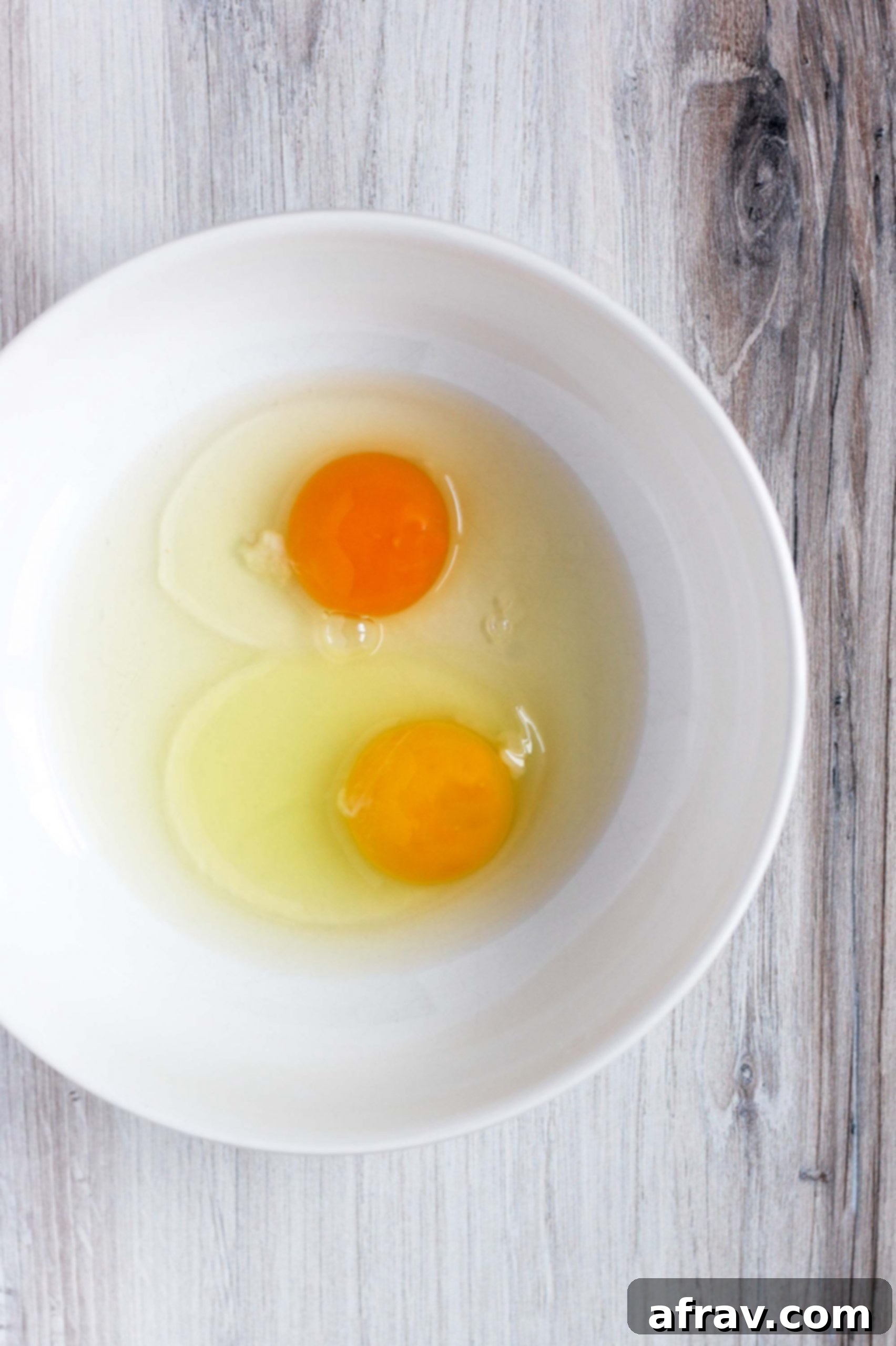
Making the Best Choice: Your Action Plan for Shopping for Eggs
Navigating the egg aisle no longer needs to be a source of confusion. Armed with this comprehensive knowledge, you can approach your next egg purchase with confidence, knowing exactly what to look for to align with your values and health goals. Here’s a simple, actionable plan to guide your choices:
- Educate Yourself Continuously: First and foremost, solidify your understanding of the distinctions between “cage-free,” “free-range,” “organic,” and “pasture-raised” eggs. Remember their inherent limitations and the true benefits of the higher standards. Stay informed about new certifications or evolving industry practices.
- Prioritize Your Values: Before you even get to the store, determine what is most important to you and your family—be it superior animal welfare, optimal nutritional density, environmental sustainability, or a balance of all these factors. This clarity will significantly guide your choices and make the decision-making process much simpler.
- Actively Seek Robust Certifications: Beyond just the “pasture-raised” label, actively seek out credible, third-party certifications like Certified Humane® Raised and Handled®, Animal Welfare Approved, or Global Animal Partnership (GAP) ratings. These certifications provide independent verification and ensure that the hens’ living conditions and treatment meet rigorous, transparent standards that go beyond minimum requirements.
- Observe the Eggs (When Possible): While not always feasible before purchase, remember that a vibrant, deep orange yolk is a strong visual indicator of a healthier, more nutrient-dense egg, typically found in pasture-raised varieties. If you have the option to buy directly from a farmer, ask about their practices and observe the eggs.
- Consider Local Options: If available, explore local farmers’ markets or direct-to-consumer farm sales in your area. This can often provide access to truly pasture-raised eggs, and you can directly ask the farmer about their animal care practices, building trust and transparency.
For me, the ideal choice consistently combines both superior animal welfare and nutritional benefits. Therefore, when I’m at the store, I prioritize eggs that are clearly labeled “pasture-raised” and, crucially, also bear the Certified Humane® Raised and Handled® seal. This combination ensures I’m getting eggs from hens that have lived a good life, foraging naturally outdoors, and are producing eggs of exceptional quality and nutritional value. Making this conscious choice contributes to healthier meals and supports more ethical farming practices.
Now that you’re an expert in egg labels and ready to make the best choices, why not put those amazing eggs to good use? Be sure to check out my easy and delicious Dairy-free Vegetable Frittata recipe. It’s a fantastic way to enjoy the rich flavor and nutrients of high-quality eggs in a healthy, satisfying meal.
I’d love to hear your thoughts! Please comment below and let me know what you think about this egg buying guide and your experience with reading egg labels. Have you noticed a difference in taste or color? Your insights are always welcome and help build a community of informed consumers!
Eat Clean. Be Healthy!
-Sara
Resources:
- Humane Farm Animal Care’s Laying Hen Comparison Chart
- Certified Humane: Article Explains Difference Pasture-Raised Free-Range Eggs
- Certified Humane: Frequently Asked Questions
- Dr. Axe: Egg Carton Claims Decoded
- Dr. Weil: Are Pastured Eggs Better?
- PopSugar Fitness: Pasture-Raised Eggs Healthier
